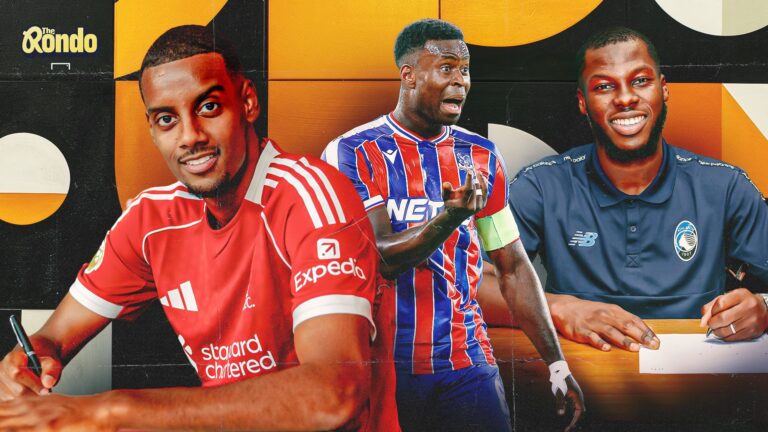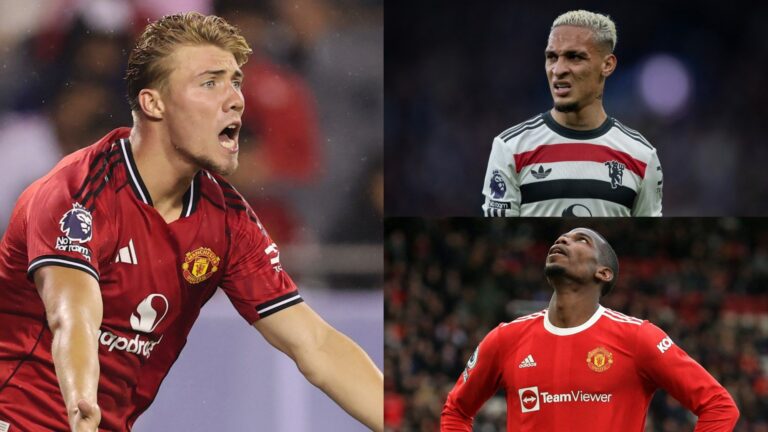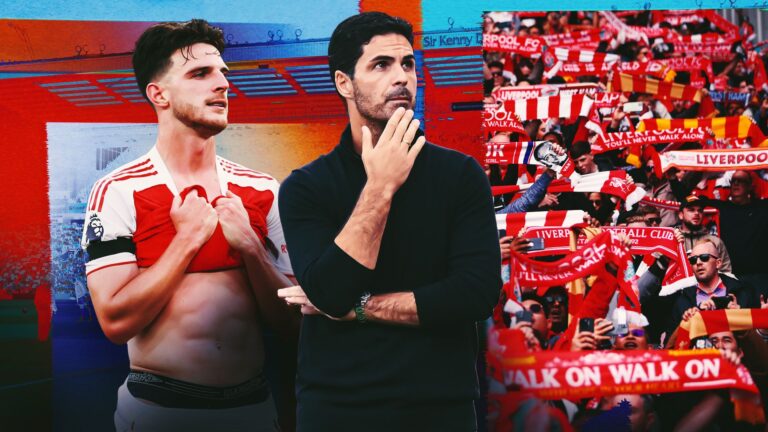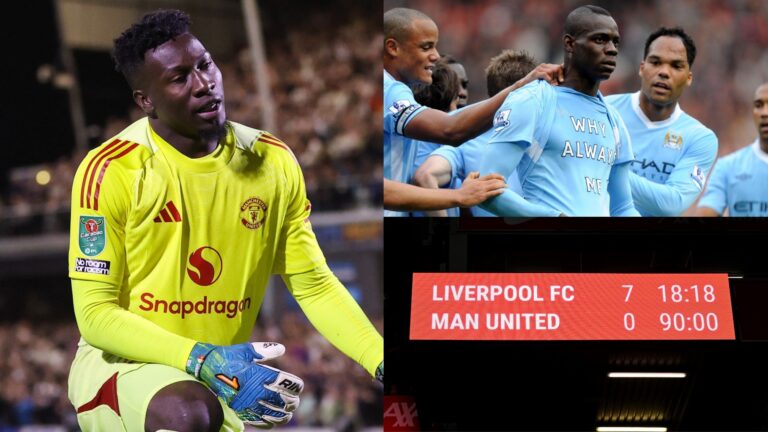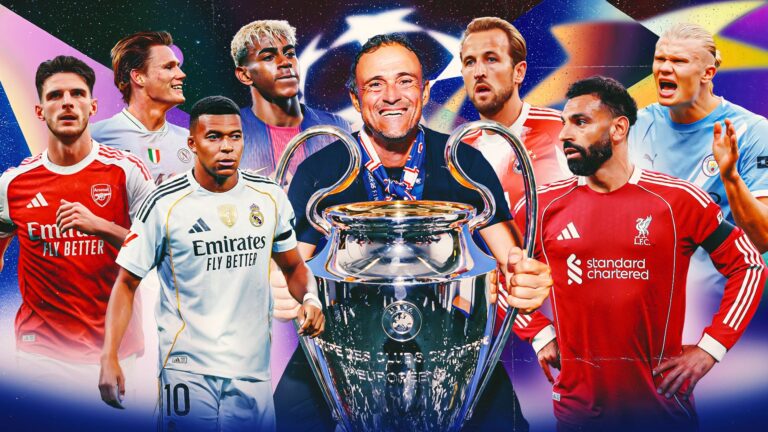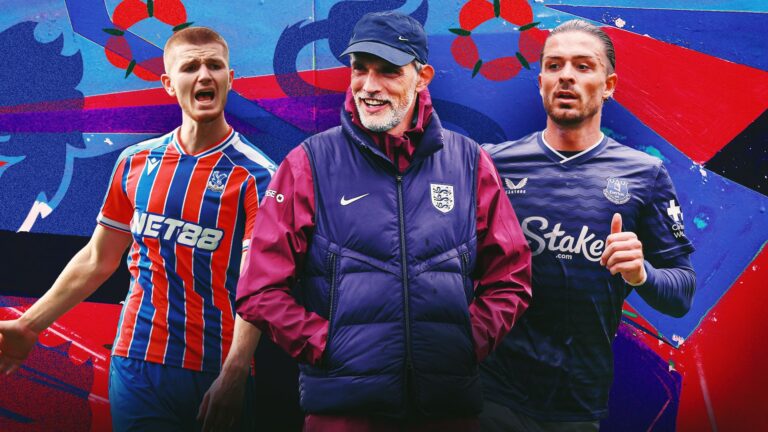And now, the end is near, with Lionel Messi almost certainly set to bring the curtain down on his illustrious Argentina career at next summer’s كأس العالم, which will be played in the متحد الدول، كندا والمكسيك.
Of course, we thought that the Albiceleste captain would retire after leading his country to glory in Qatar in 2022 – but Messi had so much fun playing under Lionel Scaloni that he decided to continue.
However, it won’t be long now before the diminutive No.10 walks away from the international arena, so as he prepares to play the final World Cup qualifiers of his illustrious career, BALLGM has picked out Messi’s 10 most memorable moments representing his country at senior level, from announcing himself on the world stage in 2006 to claiming the game’s most prestigious prize 16 years later…











And now, the end is near, with Lionel Messi almost certainly set to bring the curtain down on his illustrious Argentina career at next summer’s World Cup, which will be played in the United States, Canada and Mexico.
Of course, we thought that the Albiceleste captain would retire after leading his country to glory in Qatar in 2022 – but Messi had so much fun playing under Lionel Scaloni that he decided to continue.
However, it won’t be long now before the diminutive No.10 walks away from the international arena, so as he prepares to play the final World Cup qualifiers of his illustrious career, بالجم has picked out Messi’s 10 most memorable moments representing his country at senior level, from announcing himself on the world stage in 2006 to claiming the game’s most prestigious prize 16 years later…
Despite missing the final few months of his breakout season at برشلونة through injury, Messi was included in Argentina’s 2006 World Cup squad and football fans all across the globe couldn’t wait to see the teenager make his tournament debut in Germany.
Messi spent the entirety of his country’s opener against Ivory Coast on the bench, but he came on in the closing stages of the matchday-two meeting with Serbia and Montenegro – and immediately made his mark on the game’s grandest stage.
During a sensational 16-minute cameo, Messi scored one goal and created another with a delighted Diego Maradona watching on from the stands at the Arena AufSchalke in Gelsenkirchen. “He’s not just good,” the iconic No.10 said of the kid he anointed his heir, “he’s special.”
After netting on his World Cup debut, Messi would remarkably have to wait eight years for his second tournament goal, as جنوب أفريقيا 2010 was a disaster for both the Barcelona superstar and Maradona, who parted company with Argentina shortly after the humiliating 4-0 quarter-final loss to Germany.
Consequently, Messi was under intense pressure to deliver in البرازيل 2014, and although the Albiceleste’s campaign ended in agony, their No.10 began brightly.
‘La Pulga‘ scored the decisive second goal in the 2-1 win over Bosnia u0026amp; Herzegovina, after a delightful bit of precise play on the edge of the penalty box, and even better was to follow on matchday two, with Messi breaking Iranian hearts with a stunning injury-time winner struck from wide on the right-hand side of the box.
The attacker then put the seal on a fantastic group stage from a personal perspective by scoring two more goals in the 3-2 win over Nigeria – the second of which was a stunning free-kick.
Argentina’s 2022 World Cup last-16 clash with أستراليا was Lionel Messi’s 1000th game as a professional. Unsurprisingly, he marked the occasion with a typically mesmerising performance.
“A special player to watch,” Socceroos midfielder Keanu Baccus said of Messi, who opened the scoring in Argentina’s 2-1 win with a wonderfully precise finish from just inside the area.
“He looks fake on the field, he looks a bit like a wax statue, to be honest. It’s surreal how good he actually is and how he watches the game, sees the game and takes it on himself. It’s very special because not many people can do that, so I was trying to watch over my shoulder just to see where he was and what he was doing all the time.”
Argentina’s meeting with Brazil in East Rutherford in June 2012 may have only been a friendly, but it was a hugely significant game for Messi, who produced the kind of devastating display that his countrymen had been awaiting for some time.
The fact that it came against Argentina’s biggest rivals made it all the more meaningful. As Messi said after hitting a hat-trick in a thrilling 4-3 win, “It’s always beautiful to beat Brazil, and I’m very happy with my three goals.”
The first two were both fine finishes, but the third, which decided the game in Argentina’s favour, was the pick of the bunch, with Messi picking up the ball in midfield before driving forward and unleashing an unstoppable shot into the top corner of the Brazil net.
“No one in the world has found a solution to Messi,” Selecao coach Mano Menezes pointed out afterwards. “He had four chances and scored three goals…Against some players, you cannot give them any space at all.”
As for then-Albiceleste coach Alejandro Sabella, he simply said, “We’re lucky Leo’s Argentine!”
Josko Gvardiol established himself as one of the best young defenders in the game at the 2022 World Cup in Qatar. Manchester City were so impressed with the role he played in Croatia’s run to the semi-finals that they paid £77 million ($103m) for his services the following summer.
However, not even a 20-year-old Gvardiol could cope with Messi in Qatar. Having already opened the scoring with a thumping, first-half penalty, Messi repeatedly turned his marker inside out on the right-hand side of the pitch before teeing up Julian Alvarez for the striker’s second goal of the game.
As Croatia captain Luka Modric admitted, Messi had underlined his “greatness” in Lusail, so much so in fact that Gvardiol wasn’t in the least bit embarrassed by being roasted by the GOAT.
“I’m glad that I played against him even though we lost,” the centre-back said after his country’s 3-0 loss in Lusail. “I will be able to tell the children that I marked Messi for 90 minutes.”
For footballing purists, their abiding memory of Argentina’s dramatic World Cup quarter-final win over Netherlands was Lionel Messi’s assist for Nahuel Molina. It was a pass that arguably no other player would have seen – let alone executed – and is rightly regarded as one of the finest ever played.
However, for an awful lot of Argentinians, the first thing that comes to mind when ‘The Battle of Lusail’ is brought up is Messi lashing out at Wout Weghorst while conducting a post-match interview: “What are you looking at, fool? What are you looking at, fool? Go away, fool, go away!”
Messi subsequently expressed regret over the way in which he addressed Weghorst, and several other members of the Netherlands playing and coaching staff, amid the fractious fallout from a game that featured a record-breaking 17 yellow cards.
However, his compatriots lapped it up at the time. Many Argentinians, including Hernan Crespo, had long argued that Messi lacked Maradona’s ‘nasty streak’ and was, thus, unsuited to the role of captain. They argued that he was too quiet and too clean-cut. Against the Netherlands, though, Messi showed the fiery side of his character and it only made Argentinians love him even more.
“Everything that came out was natural, I just reacted that way,”Messi told Urbana Play in January 2023. “A lot had happened with that player [Weghorst] and there were a couple more moments of tension and friction. The game had just finished, it was very fresh. I don’t like to leave that image, but these things happen.”
Argentina had arrived at the Qatar brimming with belief. Not only were they the reigning South American champions, they were also on a 36-game unbeaten run.
However, Lionel Scaloni’s side were on the wrong side of one of the biggest shocks in World Cup history in Lusail, where Argentina were beaten 2-1 by Saudi Arabia despite taking an early lead courtesy of a Messi penalty.
Consequently, one of the pre-tournament favourites were under immense pressure going into their matchday two meeting with Mexico as another defeat would mean an excruciatingly early elimination in what was expected to be Messi’s final World Cup. The tension couldn’t have been much higher, then, with Argentina still struggling to break down El Tri with less than half an hour remaining.
However, cometh the hour, cometh the captain, and in the 64th minute of the game, Messi instantaneously controlled a clever cross-field pass from Angel Di Maria before immediately firing a low strike into the bottom of the Mexico net from 25 yards out.
After his team went on to win 2-0, Messi told reporters, “Today another World Cup starts for Argentina.” And he was right, as the Albiceleste went from the ultimate embarrassment to the ultimate glory.
Messi had been left so devastated by three consecutive final defeats with Argentina that he announced his retirement from international football after the 2016 Copa America shootout loss to Chile.
However, amid public pleas for him to reverse his decision – including one from the then-president of Argentina Mauricio Macri, who called Messi “a gift from God” – the forward returned for his nation’s World Cup qualifying campaign, which was just as well.
The Albiceleste were at serious risk of missing out on Russia 2018 after conceding an early goal in their must-win game against الإكوادور on October 10, 2017. However, Messi made light of the tension – as well as the debilitating effects of playing at high altitude in Quito – and almost single-handedly qualified Argentina for the World Cup with a sensational hat-trick.
“Thank God we fulfilled our objective,” the skipper said while all of his compatriots were thanking Messi.
Truth be told, Messi didn’t play particularly well in the 2021 Copa America final in Brazil. But it didn’t matter.
For starters, they wouldn’t have made it that far without him, as underlined by the fact that despite blanking in the 1-0 win in Rio, Messi still won the tournament’s Golden Ball and Golden Boot after being directly involved in nine of Argentina’s 12 goals, netting five himself.
This wasn’t about individual honours, though (it never has been for Messi); this was about finally winning a trophy with his beloved Argentina – which is why Messi was overcome with emotion and collapsed to turf in tears when the final whistle blew at the Maracana.
“I have peace of mind of having achieved the dream that has been denied to me so many times,” a still-emotional Messi admitted to إي إس بي إن three months later as he recalled the agony of four previous major final defeats. “It was like a dream, a spectacular moment. I couldn’t believe it had happened. I enjoy watching the images now more than at the time as I was in a daze. I didn’t quite understand what was happening.”
The full significance of Argentina ending their 28-year Copa America drought has only since become clear, too, as Angel Di Maria’s winner against Brazil proved the catalyst for the most successful era in the Albiceleste’s history.
The crowning moment of Messi’s career. When Gonzalo Montiel rolled in the decisive spot-kick at the end of the most dramatic World Cup final ever played, Messi’s status as the greatest of all time became impossible to dispute.
Not since Diego Maradona in 1986 had one player dominated the tournament in such remarkable موضة, with Messi named Player of the Match in every single knockout game he played.
His double in the gripping 3-3 draw with فرنسا in the final in Qatar also took his overall tally of World Cup goal contributions to 21 – one more than Brazil legend Pele – and helped him become the only man in history to win the competition’s Golden Ball twice. And he’d done all this at the age of 35, which was testament to a level of sustained excellence that not even Maradona managed.
As Gary Lineker wrote on social media, “It’s been an absolute privilege to watch Lionel Messi for nearly two decades. Moment after moment of spellbinding, breathtakingly joyous football. He’s a gift from the footballing gods.”



